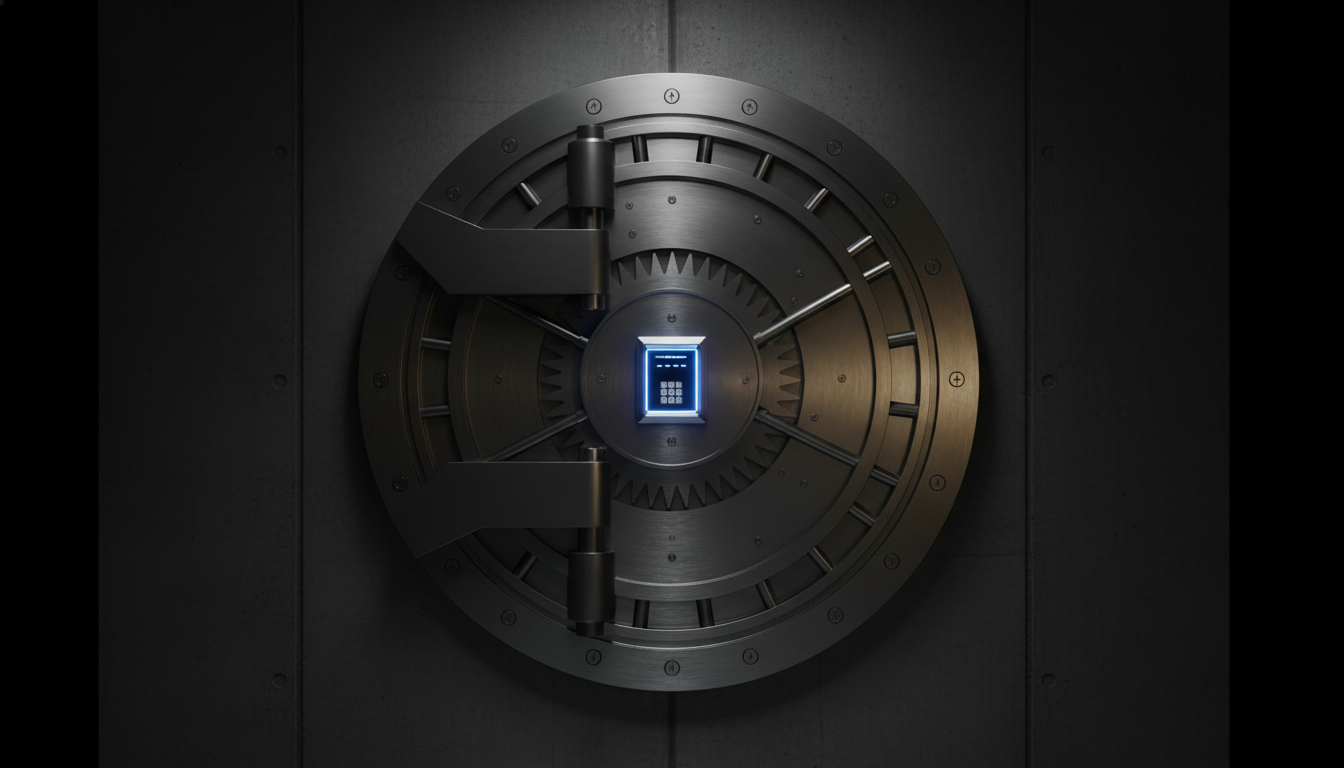Best Luxury Cars 2025: Top 10 Models for Performance and Prestige
In the realm of automotive excellence, luxury cars represent the pinnacle of engineering, design, and status. Our comprehensive analysis identifies the most exceptional luxury vehicles of 2025, combining performance specifications, market positioning, and owner satisfaction data.
Key Takeaways
- The luxury car market in 2025 is dominated by electric and hybrid powertrains with traditional combustion engines reserved for ultra-premium models.
- German manufacturers maintain their leadership position, but new entrants from China and revitalized American brands are disrupting the established hierarchy.
- Advanced driver assistance systems (ADAS) have become standard across all luxury segments, with Level 3 autonomy now common in vehicles above $120,000.
- Sustainable luxury materials and carbon-neutral manufacturing processes have become key differentiators in the premium market.
How We Selected These Models
Our selection criteria emphasize five key factors: performance metrics, luxury appointments, technological innovation, design excellence, and value proposition. Each vehicle was evaluated based on manufacturer specifications, expert reviews, and owner satisfaction data.
1. Mercedes-Benz S-Class (2025)
The Mercedes-Benz S-Class continues its reign as the benchmark for luxury sedans, with the 2025 model introducing significant advancements in both comfort and technology.
| Base Price | $118,500 |
| Power | 429–630 hp |
| 0–60 mph | 4.1–3.0 seconds |
| Key Features | Level 3 autonomous driving, 3D instrument cluster, augmented reality navigation, rear-wheel steering |
The S-Class excels in creating an environment of unparalleled refinement. The cabin employs noise-cancellation technology that makes it whisper-quiet even at highway speeds. Mercedes’ MBUX infotainment system continues to evolve, now featuring enhanced natural language processing that understands context and preferences with remarkable accuracy.
2. Rolls-Royce Spectre
Rolls-Royce’s first fully electric vehicle redefines ultra-luxury with zero-emission performance that doesn’t compromise the brand’s legendary refinement.
| Base Price | $420,000 |
| Power | 577 hp |
| 0–60 mph | 4.4 seconds |
| Key Features | 400-mile range, Phantom-inspired interior, starlight headliner, coach doors, Whisper mode for ultra-quiet operation |
The Spectre manages to capture the essence of Rolls-Royce while embracing electrification. Its nearly silent operation complements the brand’s “magic carpet ride” sensation. The Spectre’s imposing presence is matched by impeccable craftsmanship inside, where each vehicle requires over 4,000 hours of handwork.
3. BMW i7 M70 xDrive
BMW’s flagship electric sedan combines luxury with performance-oriented engineering and cutting-edge technology.
| Base Price | $168,500 |
| Power | 650 hp |
| 0–60 mph | 3.5 seconds |
| Key Features | 31-inch rear theater screen, illuminated kidney grille, Merino leather interior, Highway Assistant with hands-free driving |
The i7 M70 represents BMW’s vision for electric performance luxury. The vehicle’s innovative dual-axis air suspension automatically adjusts based on road conditions and driving style. Despite weighing over 5,900 pounds, the i7 M70 handles with remarkable agility thanks to its low center of gravity and rear-wheel steering system.
4. Bentley Continental GT Speed (2025)
The refreshed Continental GT Speed blends British craftsmanship with raw performance in a grand touring package.
| Base Price | $280,000 |
| Power | 650 hp (W12 engine) |
| 0–60 mph | 3.5 seconds |
| Key Features | 48V active anti-roll system, carbon ceramic brakes, 20-way adjustable seats, bespoke interior options |
In what may be the final iteration of Bentley’s legendary W12 engine before full electrification, the Continental GT Speed offers a compelling blend of old-world luxury and modern performance. The interior features over 10 square meters of wood veneer, each piece selected and matched by Bentley’s craftspeople.
5. Lucid Air Sapphire
The Air Sapphire establishes new benchmarks for electric vehicle performance while maintaining exceptional luxury and range.
| Base Price | $249,000 |
| Power | 1,234 hp |
| 0–60 mph | 1.9 seconds |
| Key Features | 446-mile range, 900V architecture, 350kW DC fast charging capability, 34-inch curved glass cockpit |
Lucid’s technological prowess is on full display with the Air Sapphire. Its three-motor powertrain delivers hypercar acceleration while its industry-leading efficiency enables remarkable range. The cabin showcases sustainable materials, including alpaca wool and recycled fabrics, without compromising luxury.
6. Porsche Taycan Turbo GT
Porsche’s flagship electric vehicle blends the brand’s racing heritage with cutting-edge electric performance.
| Base Price | $230,000 |
| Power | 1,092 hp (with overboost) |
| 0–60 mph | 2.1 seconds |
| Key Features | Carbon fiber reinforced plastic body components, active aerodynamics, Nürburgring-tuned chassis, 800V architecture |
The Taycan Turbo GT represents Porsche’s ultimate expression of electric performance. Its track-focused development is evident in everything from its aerodynamic profile to its precisely calibrated thermal management system. Despite its performance credentials, the interior remains luxuriously appointed with premium materials.
7. Aston Martin DB12
The DB12 continues Aston Martin’s grand touring tradition with enhanced performance and a thoroughly modernized interior.
| Base Price | $245,000 |
| Power | 671 hp |
| 0–60 mph | 3.3 seconds |
| Key Features | Twin-turbocharged V8, carbon ceramic brakes, bespoke Bridge of Weir leather interior, Bowers & Wilkins audio system |
Aston Martin describes the DB12 as a “super tourer,” reflecting its enhanced performance capabilities without sacrificing grand touring comfort. The cabin features a completely redesigned infotainment system that addresses criticisms of previous generations, while maintaining the brand’s handcrafted approach to luxury.
8. Ferrari Purosangue
Ferrari’s first four-door production vehicle delivers supercar performance with unexpected practicality.
| Base Price | $398,000 |
| Power | 715 hp |
| 0–60 mph | 3.2 seconds |
| Key Features | Naturally aspirated V12, suicide rear doors, active suspension technology, carbon fiber roof |
While Ferrari resists calling the Purosangue an SUV, this four-door offering combines practicality with the marque’s legendary performance. The vehicle’s active suspension system eliminates traditional anti-roll bars, utilizing a 48V system to control body movements with remarkable precision. The interior features sustainably produced Alcantara derived from recycled polyester.
9. Maserati GranTurismo Folgore
Maserati’s electric grand tourer preserves the brand’s emotive character while embracing electrification.
| Base Price | $205,000 |
| Power | 751 hp |
| 0–60 mph | 2.7 seconds |
| Key Features | Three-motor powertrain, 800V architecture, unique sound engineering, Econyl® recycled nylon interior trim |
The GranTurismo Folgore proves that electric vehicles can deliver emotional experiences. Maserati’s engineers developed a distinctive soundscape that evolves with speed and throttle input, preserving the auditory character that’s essential to the brand. The vehicle’s battery is arranged in a T-bone configuration to maintain the low seating position expected in a grand tourer.
10. Lexus LFA Successor
Lexus returns to the supercar segment with an electrified successor to the legendary LFA.
| Base Price | $375,000 (estimated) |
| Power | 800 hp (hybrid powertrain) |
| 0–60 mph | 2.5 seconds (estimated) |
| Key Features | Simulated manual transmission, carbon fiber monocoque, solid-state battery technology, Tazuna cockpit concept |
While technically a supercar, the LFA successor earns its place among luxury vehicles through its meticulous craftsmanship and attention to detail. The vehicle’s hybrid powertrain combines a high-revving internal combustion engine with electric motors, delivering immediate response and a distinctive character that pure EVs can’t match.
Pricing Comparison
Luxury vehicles represent significant investments. This comparison highlights the starting prices across our selections:
| Vehicle | Starting Price |
| Mercedes-Benz S-Class (2025) | $118,500 |
| BMW i7 M70 xDrive | $168,500 |
| Maserati GranTurismo Folgore | $205,000 |
| Porsche Taycan Turbo GT | $230,000 |
| Lucid Air Sapphire | $249,000 |
| Aston Martin DB12 | $245,000 |
| Bentley Continental GT Speed | $280,000 |
| Lexus LFA Successor | $375,000 (est.) |
| Ferrari Purosangue | $398,000 |
| Rolls-Royce Spectre | $420,000 |
Performance Metrics
For luxury car enthusiasts, performance remains a crucial consideration. Here’s how our selections compare in acceleration:
| Vehicle | 0–60 mph (seconds) | Top Speed |
| Lucid Air Sapphire | 1.9 | 205 mph |
| Porsche Taycan Turbo GT | 2.1 | 190 mph |
| Maserati GranTurismo Folgore | 2.7 | 202 mph |
| Lexus LFA Successor | 2.5 (est.) | 220 mph (est.) |
| Ferrari Purosangue | 3.2 | 193 mph |
| Aston Martin DB12 | 3.3 | 202 mph |
| Bentley Continental GT Speed | 3.5 | 208 mph |
| BMW i7 M70 xDrive | 3.5 | 155 mph (limited) |
| Mercedes-Benz S-Class (S 580) | 4.1 | 155 mph (limited) |
| Rolls-Royce Spectre | 4.4 | 155 mph (limited) |
Electric Range Comparison
For electric and hybrid models, range remains an important consideration for luxury buyers:
| Electric Vehicle | EPA Range | Charging Capability |
| Lucid Air Sapphire | 446 miles | 350kW (20–80% in 21 min) |
| BMW i7 M70 xDrive | 318 miles | 195kW (10–80% in 34 min) |
| Rolls-Royce Spectre | 400 miles | 250kW (20–80% in 25 min) |
| Maserati GranTurismo Folgore | 280 miles | 270kW (20–80% in 18 min) |
| Porsche Taycan Turbo GT | 305 miles | 320kW (5–80% in 19 min) |
Technology Highlights
Technological innovation continues to distinguish luxury vehicles from their mainstream counterparts. These are the standout technologies found in our top 10 selections:
Advanced Driver Assistance
Mercedes and BMW lead with Level 3 conditional automation, allowing hands-free operation under specific conditions. Porsche and Lucid offer sophisticated Level 2+ systems that combine adaptive cruise control with lane centering and automated lane changes.
Infotainment Evolution
BMW’s 31-inch theater display for rear passengers sets a new standard for in-car entertainment. Mercedes’ augmented reality navigation overlays directions onto a real-time camera view. Ferrari integrates a passenger-specific display that provides performance data and entertainment options.
Materials Innovation
Sustainability has become a hallmark of modern luxury, with recycled and responsibly sourced materials appearing across all price points. Maserati uses Econyl recycled nylon, while Bentley offers a non-leather interior option derived from mushroom leather. Rolls-Royce now sources wood veneers exclusively from forests with full chain-of-custody certification.
Why These Cars Define Luxury in 2025
Electrification Without Compromise
Electric powertrains now dominate the luxury segment, offering performance advantages without sacrificing refinement. Battery technology advancements have eliminated range anxiety for premium buyers.
Personalization as Standard
Mass customization has reached new heights, with marques like Rolls-Royce and Bentley offering essentially limitless combinations of materials and finishes. Digital customization extends this trend, with user-configurable displays and ambient lighting systems.
Sustainable Luxury
Environmental consciousness has transformed luxury manufacturing, with carbon-neutral production facilities becoming the norm. Materials innovation has delivered sustainable alternatives that meet or exceed the quality of traditional luxury appointments.
Digital Integration
The integration between vehicles and digital ecosystems has matured, with seamless connections to smart homes, calendars, and preferences. AI systems learn driver behaviors to anticipate needs before they’re expressed.
Frequently Asked Questions
Which luxury car has the best residual value?
Based on historical data and current trends, the Porsche Taycan Turbo GT is expected to retain approximately 58% of its value after three years, leading our selections in residual value. Limited production models like the Lexus LFA successor and Ferrari Purosangue may appreciate depending on collector interest.
Are fully electric luxury cars reliable?
The current generation of electric luxury vehicles demonstrates excellent reliability due to their simplified mechanical components. The Lucid Air platform has shown impressive durability in long-term testing, with minimal degradation over high mileage. However, software complexity remains a potential issue across all modern luxury vehicles.
Which luxury car offers the best driving assistance features?
Mercedes-Benz and BMW offer the most advanced driving assistance systems with Level 3 capabilities under specific conditions. The Mercedes Drive Pilot system can assume responsibility for driving on mapped highways at speeds up to 40 mph in heavy traffic or congested situations, allowing the driver to engage in secondary activities.
What’s the average maintenance cost for these luxury vehicles?
Maintenance costs vary significantly across brands and powertrains. Electric models typically require less routine maintenance, with annual costs averaging $600–$800. Traditional internal combustion vehicles like the Ferrari Purosangue can exceed $3,000 annually in scheduled maintenance. Most manufacturers offer comprehensive maintenance packages for the first 3–5 years.
Which luxury car has the most advanced interior technology?
Mercedes-Benz’s S-Class offers the most comprehensive technology suite with its MBUX system, augmented reality navigation, biometric authentication, and Level 3 autonomous capabilities. BMW’s i7 provides the most impressive rear entertainment with its 31-inch 8K theater screen and integrated streaming services.
Conclusion: The Future of Luxury Motoring
The 2025 luxury car market reflects a fascinating transition period where traditional craftsmanship meets cutting-edge technology. Electrification has thoroughly transformed the segment, with even legacy manufacturers embracing battery power for their flagship models. The definition of luxury continues to evolve beyond opulent materials to include sustainability, technological integration, and personalization.
For collectors and enthusiasts, this moment represents both an end and a beginning. The twilight of the internal combustion era is producing some extraordinary final chapters from brands like Bentley and Ferrari, while the electric revolution is enabling performance and refinement that was previously impossible.
As luxury car manufacturers continue to push boundaries, the beneficiaries are discerning customers who now have access to unprecedented levels of performance, comfort, and technology. Whether your priority is silent electric power or the emotional experience of a high-revving engine, the 2025 luxury car market offers compelling options across the spectrum.



